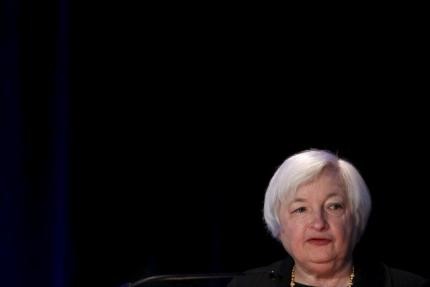* Global market, growth outlook darkens
* Chart of 2-year yields: http://reut.rs/1QmVuae
* Chart of oil and inflation expectations: http://reut.rs/1PFllWf
* Chart of oil and S&P 500 correlation: http://reut.rs/1QmSDhx
By Jamie McGeever
LONDON, Jan 21 (Reuters) - The depth and ferocity of the selloff in world stocks and commodities so far this year has forced investors into a dramatic rethink of what the world's major central banks will do in 2016.
Trillions of dollars wiped off equity market capitalisation has undermined economic growth forecasts and a relentless oil price plunge has intensified deflationary forces. As a result markets now think central banks can go slower in tightening policy or even ease further.
Oil, which had already more than halved in price from the middle of 2014, has fallen a further 25 percent since the turn of the year to its lowest since 2002 LCOc1 . Major equity markets have had their worst start to a year on record. And this week the International Monetary Fund surprised no one when it cut its global growth forecasts for this year and next.
The most dramatic market shift in central bank expectations has been for the U.S. Federal Reserve, which only last month raised U.S. interest rates for the first time in a decade.
At the time of that long-flagged "liftoff", markets generally anticipated a further two to three rate hikes of a quarter percentage point this year, bringing the Fed funds target rate up to 0.75-1.00 percent.
The Fed itself outlined four rate hikes, but now barely one is priced into futures markets, and that's not even seen until late in the year.
On Tuesday this week, the other central bank penciled in for a 2016 rate rise - the Bank of England - effectively steered markets into 2017 instead as governor Mark Carney warned of low wage growth as well as the fallout from falling oil and market turbulence.
JP Morgan economists are reflecting the broad rethink across the financial market community, issuing dovish revisions to their forecasts for the Fed, European Central Bank, Bank of England, Bank of Japan and Bank of Canada over the past week.
The slide in benchmark two-year bond yields across the developed world since the turn of the year reflects the change in market outlook.
The U.S. 2-year yield has plunged 25 basis points, putting it on track for the biggest monthly fall in six years, while Canada's two-year yield has hit an all-time low. Inflation expectations gauges in the euro zone and United States are ebbing sharply too.
With policy ammunition largely exhausted in fighting the 2007-09 crisis, central banks' room for maneuver is limited. Just how limited could be exposed next month in Shanghai at the first of the finance ministers and central bank governors meetings under China's G20 presidency.
